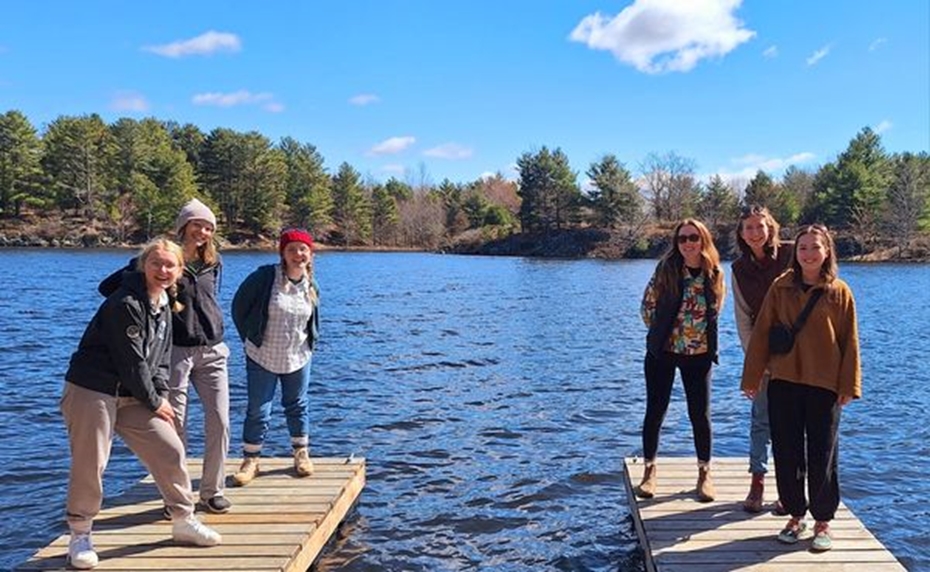Submitted by Pamela Shea, Professor, Honours Bachelor of Behavioural Psychology
In April, 50 graduating students of Honours Bachelor of Behavioral Psychology participated in a two-day immersive educational experience rooted in Indigenous learning traditions.
Land-based learning has long been practiced by Indigenous Peoples as students learn through storytelling lead by an Indigenous leader, prepare food, hike, lay tobacco, participate in a blanket exercise, smudging, plant identification, campfires, directed and organic discussion, and spreading seeds.
Students also prepared culturally rooted foods on the land, fostering a deeper connection to their environment. The program aimed to promote environmental stewardship and recognized the land as a primary teacher.
The goals of the program focused on developing a deeper understanding of power imbalances and the trauma associated with marginalization, fostering inclusivity, diversity, respect for differences, and a greater self-awareness of bias. Students learned and reflected on the environmental crisis, in the context of nature, and engaged in reflective discussions of strategies supported by behaviour science to address sustainable development goals.
The event, guided by Helena Neveau, Knowledge Keeper, Jadon Hook, SLC Sustainability Coordinator, and Pamela Shea, professor, took place at the Queen’s University Environmental Centre on Elbow Lake.
Some Student Feedback
“It was impactful for me because hearing the history of the Indigenous group and seeing it played out through the blanket exercise. It helped to put the struggles into perspective and cement the teachings.”
“I felt like the trip was very eye opening in relation to the environmental challenges of today and the continued struggles of the indigenous community.”
“The trip made me more aware of some of my own beliefs. It really made me understand and sympathize with the indigenous community in a way classrooms couldn’t.”
“Being immersed in the land-based exercise was very impactful as they brought more meaning to the content being taught. Experiencing some aspects firsthand was eye opening and made the experience more meaningful.”
“The land-based learning shed light on how fortunate I am to be in my situation. Specifically, by discussing the horrible events Indigenous people had to go through. I felt connected and supported by everyone. Since the retreat I have found myself being more mindful of the waste I produce and how I can use my own entitlements to benefit other people. I have a new interest in the field of climate change and how I can use my BPSYC skills to make a positive impact.”
“Having BPSYC students there allowed us to bounce ideas off one another. The retreat was very informative. I think the stories were what made this so educational as well as impactful.”
“It was a great way to learn about deeper topics regarding prejudice and climate change. It was the most impactful thing that I ever experienced.”
“It meant a lot to me to connect with my heritage.”
“It was so impactful. There was a shared vulnerability. I felt more connected with the group and the topics discussed. As a person who learns more by doing, the experiential learning taught me more than any lecture I have ever had. I feel more aware of some of my personal prejudices that I didn’t recognize before deep reflection. Something from this experience shined a light on and normalized the experiences of self-prejudice/discrimination.”
“I felt more connected to myself and others. It was such an emotional experience, and I was proud of the vulnerability shown.”
BPsych Students Immerse in Land-Based Learning
